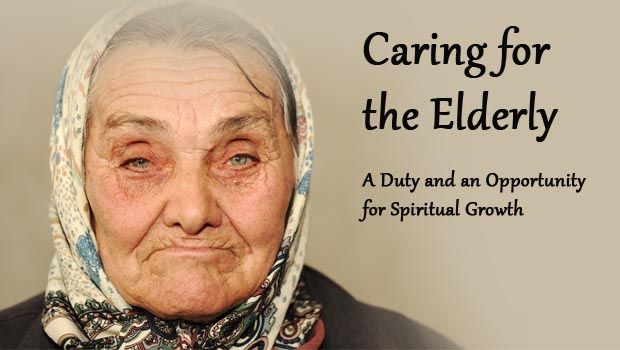An Excerpt from Commentary on the Forty Hadith of Imam Al-Nawawi
Timeless Prophetic Gems of Guidance and Wisdom
–
Abū Hamzah Anas bin Mālik (RAA), who was the servant of the Messenger of Allah (pbuh), reported that the Prophet (pbuh) said: “None of you truly believes until he loves for his brother that which he loves for himself” (Al-Bukhārī & Muslim).
Introduction
This ḥadīth states that the Muslim should love for other Muslims that which he loves for himself. This lays down a significant principle for the behavior of Muslims towards each other. A true Islāmic community is built upon love and compassion between its members. Loving that which is good for others is part of loving them. They should treat others in the same manner that they wish to be treated.
Lessons
A. Islāmic Brotherhood
The Prophet (pbuh) says in a similar hadīth: “The servant does not truly believe until he loves for others what he loves for himself from the good” (Musnad of Al-Imām Ahmad). The Prophet (pbuh) also says in another hadīth: “…Whoever wishes to be delivered from the fire and enter the garden should die with faith in Allah and the Last Day and should treat the people as he wishes to be treated by them…” (Sahih Muslim). A true Islāmic community can only arise when barriers to brotherhood are removed. These can come from divisions such as race, ethnicity, color, economic class but can also arise from extreme affiliations to differing madhāhib or religious groups/circles. Other barriers that contribute to division between Muslims are jealousy, pride, selfishness, hatred, and envy. When we deal with other Muslims in the community, we should deal with them in the best manner.
Furthermore, we should choose the best words in our conversations. Good words minimize disputes and confrontations between others. The Qur’an says in Sūrah Ahzāb, āyah 70: “O you who believe! Keep your duty to Allah and fear Him, and speak always the right word.” It also says in Sūrah Isrā’, āyāt 53-54: “And tell My servants that they should always say those words that are the best. Verily Shaytān sows a state of conflict and disagreement among them.”
Mercy and compassion should exist in our dealings with others. This is related to al-walā [love, care, and affinity for one another]. Two of the four aspects of the principle of al-walā that come from this hadīth are that Muslims must love and care about one another. The other aspects of al-walā are to help and defend Muslims.
B. Evil of Arrogance
One important behavior that we should be wary of is arrogance. Arrogance can come in many forms, which includes belittling others, looking down on others, looking at oneself as better than others, etc. The Prophet (pbuh) says: “He who has in his heart the weight of a mustard seed of pride shall not enter Paradise.” A person (among the listeners) said: “Verily, a person loves that his dress should be fine, and his shoes should be fine.” The Prophet (pbuh) remarked: “Verily, Allah is Graceful and He loves Grace. Pride is disdaining the truth (out of self-conceit) and having contempt towards people” (Sahih Muslim). It is unfortunate that arrogance is rampant among the Muslim lands in the form of racism and ethnic pride. And as the Prophet (pbuh) mentions, it takes the smallest ounce of arrogance to qualify one for the Hell-fire.
Altogether, we need to be humble and show mercy to others. Part of loving good things for others is to practice mutual consultation and to enjoin goodness and forbidding evil. When we advise others, we should do it in a good way, based on our love for them and not to seek personal interest. The Prophet (pbuh) used to show his love for others when giving advice to them. When advising others, it is better to explicitly mention that we are advising them because we love and care for them. If an advice is specific for an individual, it should be done in private so as to avoid offending the person.
C. Wishing the best for your Brother
Fudayl ibn Iyād was a famous Muslim ascetic who had been a thief but renounced his crimes and became a renowned zāhid and died in 187 A.H. He went one step further when putting this hadīth into practice. He said that we should wish others to be like us, but we should also wish them to be better than us. It is from the bounty of Islām that we have attained whatever good that exists within ourselves. Thus, we should wish the same for other Muslims. Similarly, Ibn Rajab also states that we should wish for other Muslims to be better than us in ibādah and in akhlāq. On the other hand, we should also wish for our own constant self-improvement. It is not sufficient to merely wish for something which is good for other Muslims while we are deficient and not striving to be better Muslims ourselves. Therefore, it is a matter of continuous competition among us to attain good.
D. Brotherhood in Turbulent Times
One important concept that is emphasized from the teachings of this hadīth is brotherhood. There are many Muslims in the world today, but unfortunately most of them are weak in īmān, except those upon whom Allah (SWT) bestows His mercy. Many of these weak Muslims commit sins regularly and violate principles of Islām. In the past, these people were the minority, and the Muslim community would tend to disassociate themselves away from such people. To do the same in contemporary times would, however, not be appropriate and instead would be counterproductive. In fact, even people with the minimum level of Islām should be regarded as brothers in Islām. Hence, if they were to commit a sin, we would love for them to leave the sinful act. We should care and love for them that which we love for ourselves, that we be guided aright, away from sins and disobedience.
Conclusion
This hadīth can be practiced at many different levels and in different ways. It can be applied in giving nasihah, giving sadaqah, and in enjoining the good and forbidding evil. The Muslim world today is unfortunately divided in so many different ways, and division has unfortunately become the norm. Through practicing this beautiful and powerful hadīth, the seeds for brotherhood and love can be implanted within own ummah. We can also protect ourselves from contempt, pride, suspicion, selfishness, and other evils.






